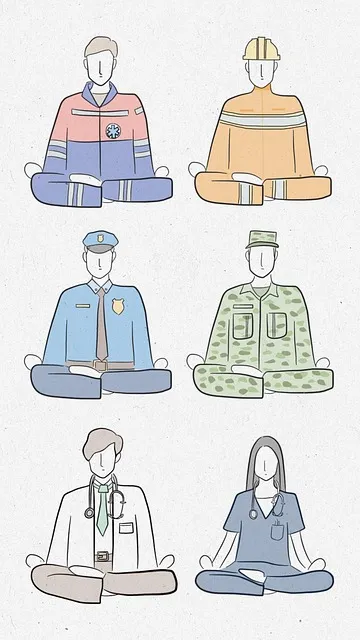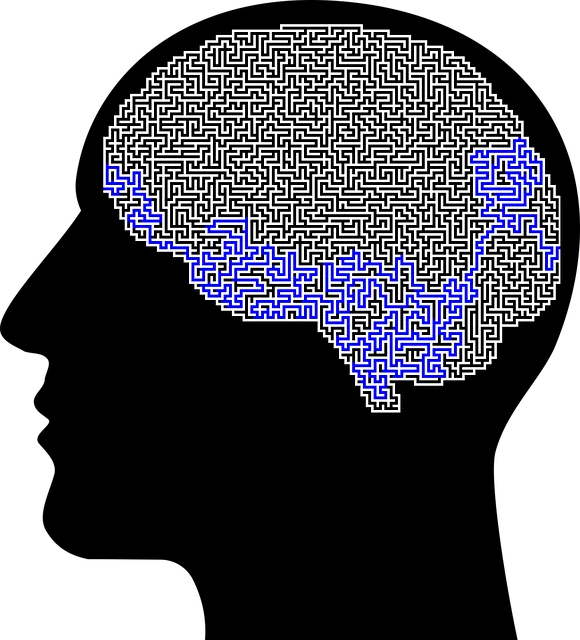The Northglenn Kaiser Permanente mental health appointment center promotes holistic well-being through positive thinking exercises tailored to individual needs. Utilizing techniques like gratitude journaling, cognitive reframing, and mindfulness meditation, they empower patients with effective mood management strategies. Regular practice enhances overall mental and physical health, reduces stress, and fosters optimism, aligning with the center's commitment to comprehensive patient care and emotional healing.
Positive thinking exercises have emerged as a powerful tool for enhancing mental well-being. This article explores the implementation of such practices at the Northglenn Kaiser Permanente Mental Health Appointment Center, highlighting their profound effects on overall wellness. We’ll delve into understanding these exercises, their benefits, and provide techniques for effective integration, offering insights that can revolutionize mental health care.
- Understanding Positive Thinking Exercises
- Integrating Positivity at Northglenn Kaiser Permanente Mental Health Appointment Center
- Benefits of Regular Practice for Overall Well-being
- Techniques and Strategies for Effective Implementation
Understanding Positive Thinking Exercises

Positive thinking exercises are a powerful tool within the mental health services offered at Northglenn Kaiser Permanente appointment center. These practices aim to empower individuals to cultivate optimistic attitudes, reframe negative thoughts, and foster resilience in the face of challenges. By integrating positive psychology principles into daily routines, participants learn to shift their perspectives, enhancing overall well-being and quality of life.
At Northglenn Kaiser Permanente, mental health professionals utilize various techniques such as gratitude journaling, cognitive reframing, and mindfulness meditation to facilitate these exercises. Tailored to individual needs, these activities support the Mental Health Policy Analysis and Advocacy efforts by promoting emotional healing processes and effective mood management. Through regular practice, individuals gain valuable coping strategies that contribute to improved mental health outcomes.
Integrating Positivity at Northglenn Kaiser Permanente Mental Health Appointment Center

At Northglenn Kaiser Permanente Mental Health Appointment Center, integrating positivity is a core strategy in enhancing patient care and well-being. The center recognizes that fostering a positive mindset can significantly contribute to effective mental health management. To this end, they have implemented various initiatives aimed at promoting positive thinking among patients. One such initiative involves incorporating self-care routines tailored to individual needs, focusing on activities that encourage mindfulness, relaxation, and emotional balance. These routines are designed to empower patients with practical tools for stress management, ensuring they can maintain a sense of mental resilience between appointments.
Moreover, the center actively organizes Stress Management Workshops, providing an engaging platform for patients to learn and share strategies for coping with life’s challenges. These workshops not only enhance self-awareness but also create a supportive community where individuals can offer encouragement and positive reinforcement to one another. Additionally, healthcare provider cultural competency training is an ongoing effort to ensure staff members are equipped to address the unique needs of diverse patient populations, fostering inclusive and compassionate care that positively influences mental health outcomes.
Benefits of Regular Practice for Overall Well-being

Regular practice of positive thinking exercises can significantly enhance overall well-being, as backed by research from Northglenn Kaiser Permanente mental health appointment centers. These exercises have been shown to improve mood management, reduce symptoms of anxiety and stress, and foster a more optimistic outlook on life. By consistently incorporating techniques such as gratitude journaling, mindfulness meditation, or positive self-talk into daily routines, individuals can cultivate a mindset that is better equipped to handle challenges and promote long-term mental health.
The benefits extend beyond emotional resilience; regular engagement in these practices can lead to improved physical health, better sleep quality, and increased life satisfaction. Incorporating positive thinking into one’s routine becomes a powerful tool for self-care, allowing individuals to actively manage their mental health in a holistic manner, much like Kaiser Permanente’s comprehensive approach at their Northglenn center.
Techniques and Strategies for Effective Implementation

Implementing positive thinking exercises requires a strategic approach to ensure their effectiveness. At Kaiser Permanente’s Northglenn Mental Health Appointment Center, professionals often utilize various techniques to help individuals cultivate optimistic mindsets. One powerful strategy is incorporating mindfulness practices such as meditation and deep breathing into daily routines. These techniques enable individuals to stay present, reducing anxiety and fostering a sense of calmness, which is essential for positive thinking.
Additionally, the center leverages the power of public awareness campaigns and Mental Health Awareness initiatives to educate folks on burnout prevention. By organizing workshops and group sessions, they teach practical strategies like cognitive reframing, where individuals learn to challenge negative thoughts and replace them with more constructive ones. Such interventions not only enhance well-being but also encourage a supportive environment where people can openly discuss their mental health challenges, further reinforcing positive thinking practices.
Positive thinking exercises, as demonstrated at the Northglenn Kaiser Permanente Mental Health Appointment Center, offer a powerful tool for enhancing overall well-being. By integrating positivity into routine mental health appointments, individuals can experience improved mood, increased resilience, and better coping mechanisms. Regular practice of these techniques fosters a sense of optimism and self-care, ultimately revolutionizing one’s approach to mental health management. This holistic strategy ensures that folks leave each appointment with practical tools to navigate life’s challenges, fostering a vibrant and lasting symphony of positive change.






